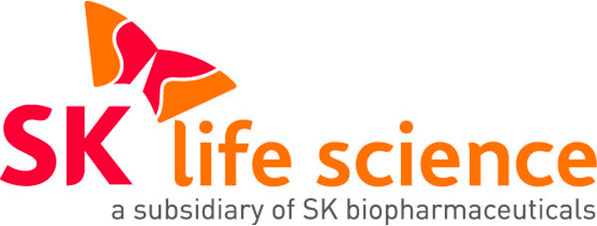December 14, 2016
AZ Capitol Times
Ben Giles
Arizona health officials announced an emergency infusion of funds for private contractors serving the elde physically disabled and individuals with developmental disabilities to help offset the costs of the state’s ne minimum wage.
Roughly $46.8 million in additional funding will be provided between January 1 and June 30, the end of t year, according to figures released Wednesday afternoon by the Arizona Health Care Cost Containment Sy AHCCCS.
Those dollars will help cover some, but not all, of the cost of a higher minimum wage that must be imple care providers starting January 1 as mandated by the voterapproved Proposition 206.
The new law will raise the minimum wage from $8.05 to $10, and also affords fulltime workers paid sick benefits. By 2020, the minimum wage must rise to $12 an hour, meaning the issue of new funding for pri providers will surface again in each of the next four years.
Rates that dictate how much it costs to provide services for Arizona’s vulnerable populations were adjuste the costs of Prop. 206 and ensure that providers can stay open, according to Christina Corieri, a senior po advisor to Gov. Doug Ducey.
However, that doesn’t mean that providers won’t still feel the budget crunch of wage increases, she ackn
Essentially, the goal was to keep service providers from going out of business on January 1.
“Our overarching concern is making sure the rates are sufficient to ensure the services are available for o vulnerable population come January 1,” Corieri. “We were solely focused on making sure those services re available and there’s not a gap for those who truly need them.”
Roughly $20.3 million will cover new labor costs for providers for the elderly and physically disabled. Anot million will be provided to the Department of Economic Security, which distributes funds to private care pr individuals with developmental disabilities.
Another $1.4 million will cover labor costs for private care providers who, in special circumstances, contra with AHCCCS.
State will provide emergency funds to offset minimum wage hike – Arizona Capitol Times
Those funds are a mix of state and federal dollars, said Beth Kohler, deputy director at AHCCCS, with the government picking up about twothirds of the cost. The state is on the hook for $11.1 million in funding, Arizona counties will kick in about $3 million for services for the elderly and physically disabled, Kohler sai
She said her agency’s share of the cost will be covered by existing funding available at AHCCCS.
“We believe for the cost for this fiscal year covered that it can be through existing resources,” she said. “ more than $12 billion budget, and so as the year goes on, we are constantly monitoring whether or not w require all of the covered expenses for all of the people enrolled in the program.
DES has a small amount of money available to cover part of the $11.1 million, but Corieri said she expect agency will have to ask state lawmakers for an emergency appropriation to fully cover its share.
Tasya Peterson, a spokeswoman for DES, confirmed that “we will need a supplemental (appropriation) du regular legislative session to get through the remainder of the year.”
The infusion of funds is intended help keep care providers afloat for now and give Arizona lawmakers and Ducey time to find a more permanent solution to an unintended consequence of Prop. 206 during the 20 legislative session. Corieri said such a solution will be part of budget negotiations in the New Year.
State government employees were exempted from the new minimum wage to avoid running afoul of a co requirement that any new votermandated spending include a designated funding source. Prop. 206, over approved by voters on the November ballot, includes no such new revenue stream, leaving private busine local governments to foot the bill for higher wages for employees making less than $10 an hour.
Private contractors that provide legallyobligated government care don’t have the same capability as priva to increase revenues or cut services to cover the cost of the new minimum wage, they say. While private can make adjustments, such as decreasing payroll or passing on costs to customers, care providers must clients based on strict federal and state requirements that must be met, or risk losing their funding, a lion which comes through the state.
Some private care providers warned they’d have to shut down in January unless their contracts with the g were adjusted and more funding was made available by the New Year.
Service rates for the care of the elderly and the physically disabled will be increased by about 7 percent a board for long term care, while nursing facilities will see 3.5 percent rate increases, according to figures p AHCCCS.
It’s unclear how rates will be adjusted by the Division of Developmental Disabilities at DES. Those figures immediately available through DES, but Kohler said the calculation of a $25.1 million infusion of funds for division assumed a similar 7 percent rate adjustment for services.
Service rates for the care of the elderly and the physically disabled will be increased by about 7 percent a board for ALTEC, while nursing facilities will see 3.5 percent rate increases, according to figures provided AHCCCS.
It’s unclear how rates will be adjusted by the Division of Developmental Disabilities at DES. Those figures immediately available through DES, but Kohler said the calculation of a $25.1 million infusion of funds for division assumed a similar 7 percent rate adjustment for services.
DES is in the process of adjusting its provider rates and will release the amended rates as soon as possibl according to Peterson.
David Schwartz, executive director for the Arizona Association of Providers for People with Disabilities, tha Ducey administration for responding to the pending funding crisis for care providers.
However, without knowing how rates would be adjusted by DES, “we do not yet have the necessary infor conduct an analysis of what that funding increase actually will mean to individual service providers and th we serve,” Schwartz said.














